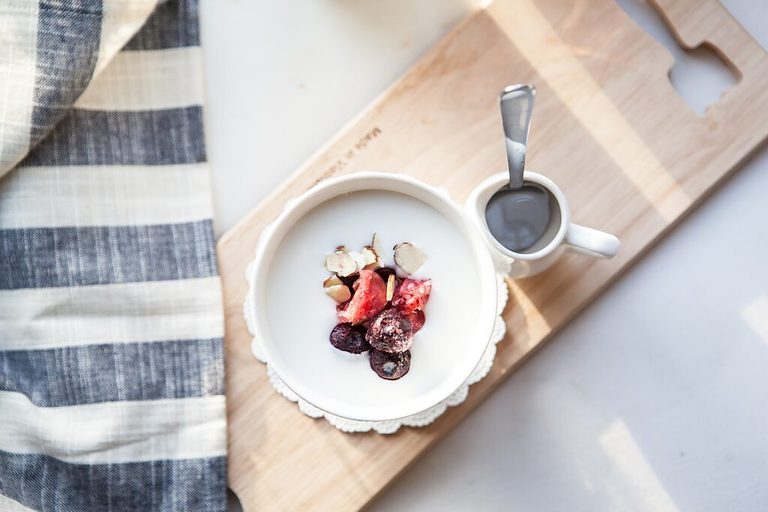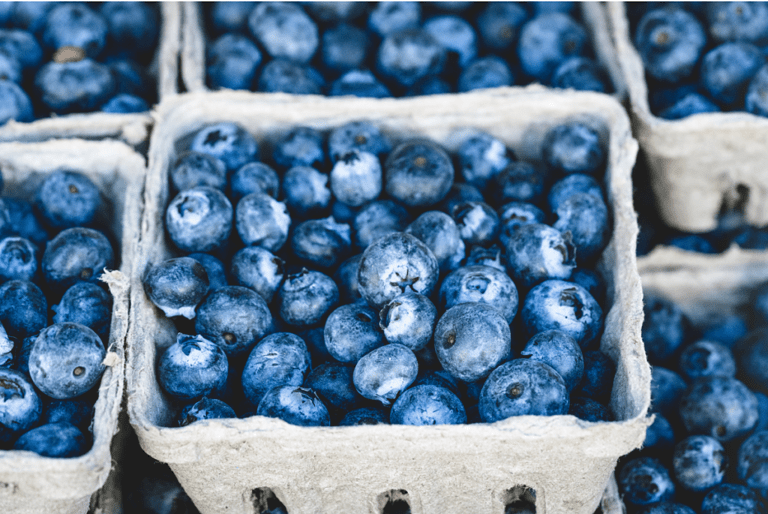Trying for a baby, whether you are going through fertility treatments, like IVF or perhaps just looking at the cost of prams can mean your bank account is looking for a little bit lighter than usual.
We know for those who do experience difficulty or delays in their fertility there are high costs in just simply conceiving their baby, let alone the price tag of a newborn into childhood and then adolescence.

Access to quality fresh produce is also an issue at this time. So here are some of our top budget AND fertility-friendly food tips for you!
This may mean you are on a budget in other areas of your life…. Including your groceries! At the time of writing we are experiencing higher inflation than in the previous decade and the cost of groceries is rising.
Pssstt you can tune into our podcast, Fertility Friendly Food, to hear more about budget tips for your fertility diet too!
Cook at home
We all love going to a restaurant or café or even a home delivery meal but we all know that cooking at home is a huge money saver. So crack open that recipe book and head to the grocery store and get cooking.

Frozen Vegetables
A lot of people think frozen veggies are not as good as fresh produce but in fact, the nutritional value of frozen vegetables is the equivalent if not better than fresh vegetables and here’s why! When you freeze vegetables it’s almost like creating a time capsule.
But snap freezing at the peak ripeness means you are protecting the vegetable from any nutrient losses in transport from the farm to the supermarket. Frozen vegetables also do not experience as much seasonal variation with pricing, it also means less wastage because you can use only what you need and also frozen vegetables will not wilt or lose their integrity quickly.

And bonus they are normally chopped or prepared to make them a very convenient option. Some of our favourite ways as dietitians to add frozen vegetables to your fertility diet are frozen peas into risotto, fried rice dishes, or Asian mixed vegetables into a stir fry.
Frozen Berries
Fresh berries can vary greatly in price depending on their seasonality. Using frozen berries is another way to add fruit to your diet in a cost-effective way and similar to frozen veggies the nutritional profile remains preserved as well as eliminating the risk of mould and wastage on the berries.
Buy your nuts and seeds in bulk
Nuts and seeds are an essential part of the fertility diet that I recommend to my clients. Bulk buying your seeds and nuts is really worth the initial splurge when it comes to your fertility diet and budget.

They last such a long time and offer so many fertility-friendly nutrients such as zinc, plant-based iron, plant-based protein, healthy fats, selenium (in the case of Brazil nuts) and a variety of vitamins and minerals. You can also try your local scoop and weigh health food store for smaller quantities.
Greek Yoghurt
If you have been following The Dietologist (@the_dietologist on Instagram) for a while you will know we are not “anti-dairy” when it comes to fertility.
Learn more about why you don’t need to be dairy free for fertility here.
In fact, studies have shown that full-fat dairy may actually help reduce the risk of anovulatory infertility (Chavarro et al., 2007), so we certainly want to be including some dairy into our diet each day providing that you don’t have an intolerance. If you do, please consider a lactose-free option of yoghurt, there are many available on the market. Large tubs of Greek yoghurt are the most cost-effective way to fertility friendly food on a budget.

Also, be sure to choose an unflavoured Greek yoghurt (and add your own fruits) to limit added sugars. Another great thing to watch out for on the label is probiotic strains listed on the packaging to gain the gut health benefits of probiotics.
Legumes
Canned legumes are an absolute winner when it comes to your fertility friendly diet. If you are eating meat, canned legumes added to your dish can extend the volume of your dish. For example a tin of legumes in your Bolognese sauce! Our top tips for using legumes are to rinse them really well before use. This helps reduce the starches and therefore the gassy side effects that legumes are famous for! Where possible choose a canned legume that has a BPA-free lining. Legumes offer a great source of plant-based proteins, iron, zinc and magnesium to support your fertility.
Tinned Veggies
have a look in the pickled section of your supermarket too. Things like olives are a great fertility friendly snack with monounsaturated fats and a satisfying salty snack that replaces less nutritious options such as salty chips and crackers. And a few olives do go a long way!
Canned fish
Canned fish such as tuna (preferably skipjack variety to avoid any mercury issues), canned salmon, anchovies or sardines. These have long shelf lives with little chance of going to waste and they really pack a punch when it comes to fertility, particularly for their omega-3 content which we know is great to support egg and sperm quality, healthy blood flow, and help with inflammation.

Canned fish is also a great source of non-dairy calcium because of the edible bones which provide a great source of calcium.
Write a shopping list
Make a meal plan and shopping list that identifies the key vegetables and grains you need shop for in your fertility friendly meals for the week. Don’t forget your snacks!
Buy your fruits and vegetables whole
and take 10 to 20 mins to prep them for the week. This is a lot cheaper than buying pre-prepared vegetables. This is a time vs cost trade-off that comes with eating on a budget.
Buy your grains and oils in bulk.
Rice, pasta and olive oils in large sizes can really make a difference when it comes to cost per kilo or litre. This is also important to look at when buying things on special, make sure you are looking at the per kilo price for the smaller item.

Save on food waste
We often throw away parts of foods that are perfectly edible! Try chopping up the stem of your broccoli finely into your stir fry or place the end of a spring onion into a glass of water to grow your own! Growing your own food, especially herbs and leafy green is an awesome way to save money and a great addition to your fertility friendly diet.
If you’re interested in optimising your fertility diet please seek expert guidance and personalised advice. Apply now for a discovery call with an expert fertility dietitian at The Dietologist.







